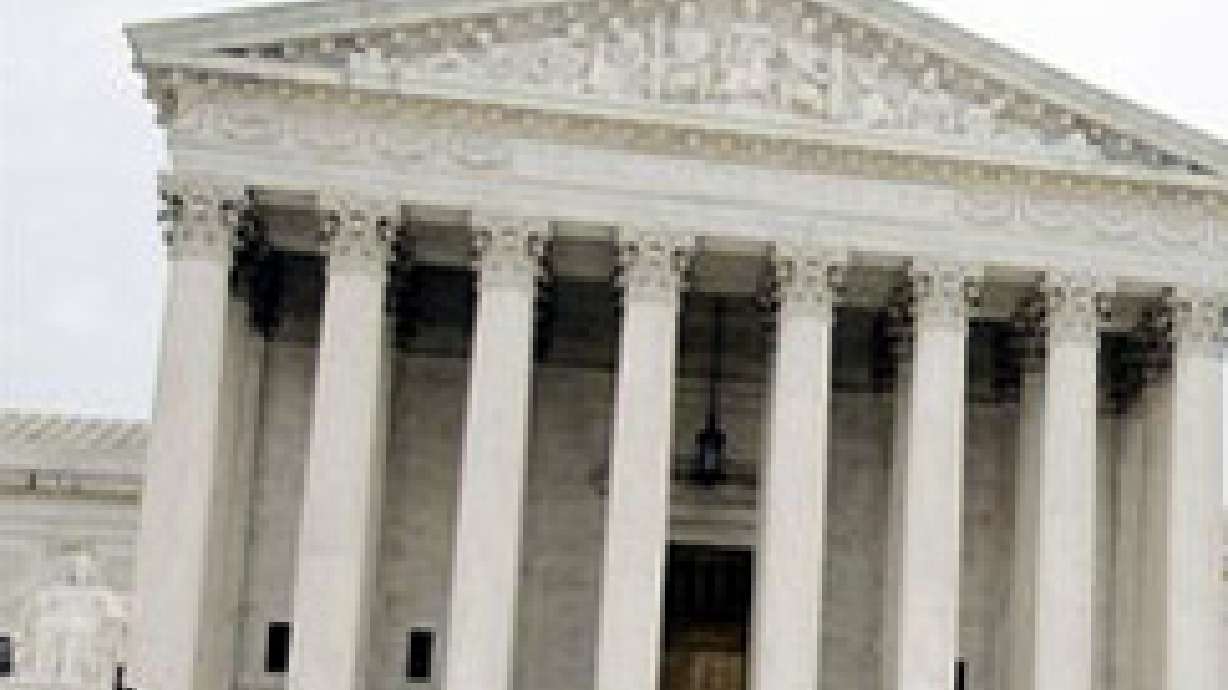Estimated read time: 2-3 minutes
This archived news story is available only for your personal, non-commercial use. Information in the story may be outdated or superseded by additional information. Reading or replaying the story in its archived form does not constitute a republication of the story.
By GINA HOLLAND
Associated Press Writer
WASHINGTON (AP) -- The Supreme Court said Tuesday it will consider the constitutionality of banning a type of late-term abortion, teeing up a contentious issue for a newly-constituted court already in a state of flux over privacy rights.
The Bush administration has pressed the high court to reinstate the federal law, passed in 2003 but never put in effect because it was struck down by judges in California, Nebraska and New York.
The outcome will likely rest with the two men that President Bush has recently installed on the court. Justices had been split 5-4 in 2000 in striking down a state law, barring what critics call partial birth abortion because it lacked an exception to protect the health of the mother.
But Justice Sandra Day O'Connor, who was the tie-breaking vote, retired late last month and was replaced by Samuel Alito. Abortion had been a major focus in the fight over Alito's nomination because justices serve for life and he will surely help shape the court on abortion and other issues for the next generation.
Alito, in his rulings on the 3rd U.S. Circuit Court of Appeals in Philadelphia, has been more willing than O'Connor, the first woman justice, to allow restrictions on abortions, which were legalized in the Roe v. Wade decision in 1973.
The federal Partial-Birth Abortion Ban Act prohibits a certain type of abortion, generally carried out in the second or third trimester, in which a fetus is partially removed from the womb, and the skull is punctured or crushed.
Justices on a 9-0 vote in a New Hampshire case reaffirmed in January that states can require parental involvement in abortion decisions and that state restrictions must have an exception to protect the mother's health.
The federal law in the current case has no health exception, but defenders maintain that the procedure is never medically necessary to protect a woman's health.
Even with O'Connor's retirement, there are five votes to uphold Roe, the landmark ruling that established a woman's right to an abortion.
Alito's views "are not going to change the outcome of the central principle of Roe v. Wade," said John Garvey, the dean at Boston College Law School. "In some ways, these are tokens or markers in ... a symbolic tug of war."
Bush has called the so-called partial birth abortion an "abhorrent practice," and his Supreme Court lawyer, Solicitor General Paul Clement, had urged justices not to delay taking up the administration's appeal.
The case that will be heard this fall comes to the Supreme Court from Nebraska, where the federal law was challenged on behalf of physicians. Doctors who perform the procedure contend that it is the safest method of abortion when the mother's health is threatened by heart disease, high blood pressure or cancer.
(Copyright 2006 by The Associated Press. All Rights Reserved.)








